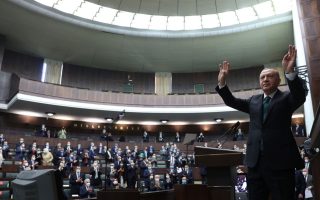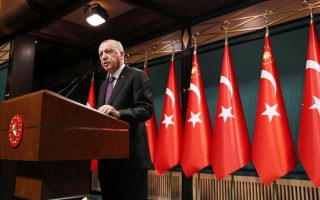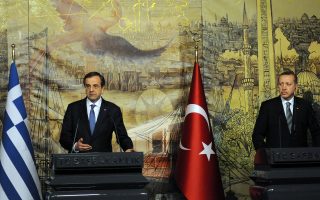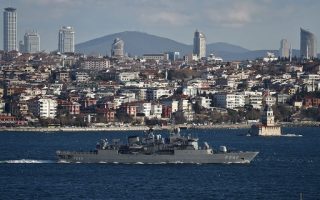Greek-Turkish relations in a nutshell

Turkish ambitions and conduct remain, until proven otherwise, a constant and major concern for Greece. The coronavirus crisis will be over at some point according to all the experts, troubles with the economy will mostly be managed, mainly through the European Union and environmental disasters are to be expected with climate change, an unfortunate situation that is set to be perpetuated. In contrast, Turkey’s attitude towards us is almost exclusively our direct problem and handling/solving it will depend on a variety of factors.
One aspect of this particular problem is clear and easily ascertained. Turkish policy is now defined by a sense of religious imperialism elevated to doctrine, which, among others, includes a revision of Turkey’s borders and the expansion of its influence, and increased efforts to have Turkey recognized as the leading regional power as well as the head of international Sunniism. The doctrine has been called “Blue Homeland” and is essentially an attempt to promote a version of Neo-Ottomanism whose scope will be defined, on the one hand, by the affected medium-sized and smaller states neighboring Turkey or larger international players who are seeking a change in the existing balance of power, and on the other hand by Ankara’s capability to bring its plans to fruition.
Greece is one of the region’s smaller powers; it can sense Turkey’s expansionism and keenly feels the threat of its actions. Greece also knows too well that if the situation continues escalating and reaches open conflict, it will have to weather the storm alone. To avoid any such escalation, Greece needs to improve its defense capabilities to ensure that any offensive maneuvers by the opposing side will come at too high a cost. This means that increased defense spending is an absolute necessity, despite the financial burden of such a move. At the same time, it is clear that Greece’s armed forces need to swiftly catch up on the technological advances and know-how required on today’s battlefield. For example, Turkey enjoys a superior drone program in large part due to our chronic torpor, a situation that needs to be rectified soon – especially considering our dependence on the United States, France and Germany, who are expecting satisfaction from our military procurement program.
Turkey has several advantages. Among them are: 1) a huge, and largely young, population (especially in comparison to Greece) that Erdogan keeps under control and rallies with his use of nationalism and religion; 2) the experience gained by Turkey’s armed forces from the longstanding conflict with Kurdish separatists as well as recent forays into several other conflicts; 3) the substantial defence industry it carefully cultivated; and 4) the fact that Turkish society is more ready to accept the idea of casualties.
To add to these advantages, we must also mention the disregard displayed by the most important powers of the West to Turkish displays of hostility and provocations. This could be because of Turkey’s important geostrategic location, or because several countries, especially European states – with Germany being the prime example – have important financial interests in Turkey, whether it is trade, investments or loans. It could even be because the West is, in a fashion, being held hostage. Apart from the migration crisis, the most important factor is the large Turkish population living in Europe and controlled through nationalist and religious networks by the Turkish government.
Greece’s advantages include international law, that which applies to sea but also more generally, treaties that have been signed in the past and cannot be doubted by anyone, Greece’s participation in pillars of the West (such as the European Union and NATO despite the insufficient support they offer), its historic ties to western civilization, its geographic location as an integral part of Europe and its function as Europe’s shield during the migrant crisis. There is also the fact that Greece cultivated good relations with Israel at the appropriate moment in time (a crucial development).
Recent developments have brought two more advantages: the decline of the Turkish economy and the election of a new administration in Washington, United States government that is willing to take on Russia and raise questions of human rights and democracy. Most importantly, it seems to have zero tolerance for NATO partners who cozy up to Moscow. This is the quagmire that Turkish President Recep Tayyip Erdogan has stepped into, bringing the geostrategic importance of Turkey into doubt and risking consequences in his country’s relations with his European patrons. He even recently threatened, indirectly, that Turkey would abandon its NATO membership. We hope this happens, but he is probably not that foolish. To be continued…





